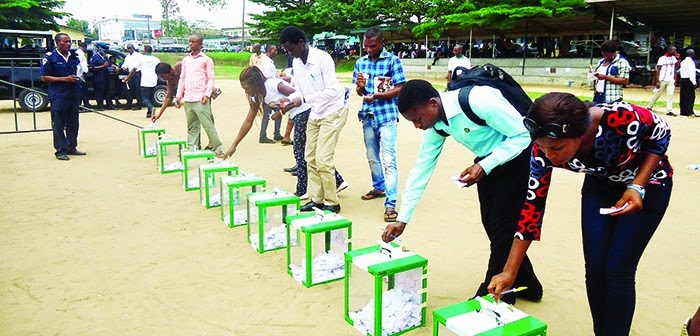Nigerians will head for the polls next month to elect the country’s next president, 29 governors and national as well as state lawmakers. The nation’s fledgling democracy is in its 20th year. Young citizens born in this republic will be exercising their right to vote for a president, for the first time. It is indeed a milestone.
The last election, which saw the incumbent president losing at the polls, was adjudged largely free and fair, compared to the previous elections held since the return to democratic rule in 1999.
This year’s general elections offer the opportunity to shape Nigeria positively and underline her position as a frontline democracy in Africa.
The concern, home and abroad, however, is whether Nigeria will be able to improve on the 2015 record with pockets of violence and killings in different parts of the country, signposting the danger ahead.
Only last Tuesday, four people reportedly lost their lives and many others, including journalists were injured, as armed gangs engaged in a shootout at the flag-off campaign rally of the All Progressives Congress, APC, in Lagos. A leader of the National Union of Road Transport Workers, NURTW, in the state, Mr..Musiliu Akinsanya, aka MC Oluomo, was reportedly knifed by rival gangsters.
The Lagos State Police Command Spokesman, Chike Oti, had expressed surprise that the thugs disrupted the rally, even after the Police Commissioner, Imohimi Edgal, had held peace talks with various factions of NURTW before the event and extracted commitments from them that the rally would be peaceful. It baffles that the police would be outsmarted by motor park lords, who have for long enjoyed political patronage in the state.
Similarly, last October in Lagos, violence broke out at a meeting an APC House of Representatives candidate, AdemorinKuye, held to thank party members in the Somolu Federal Constituency for electing him as candidate. Four suspected cult members, among them a self-confessed Eiye Confraternity leader, Ibrahim Balogun, aka Small Jpron, were killed by rival gangsters at the event. It is ironical and worrisome that politicians who aspire to lead the people fraternise and rely on cultists and motor park lords to realise their dream.
The threat of violence is, however, not restricted to Lagos. The media has been awash with reports of abductions and killings, including the most barbaric beheadings, of chieftains of leading political parties in several other states, including Ekiti, Rivers, Imo and even Abuja, the federal capital city.
The recourse to violence and killings in the quest for political power is very disturbing. We express deep concern about these developments and urge that urgent measures be introduced to safeguard the electoral process. For a long spell, it was almost impossible for Dr.Rabiu Musa Kwankwaso to visit Kano, a state he once governed, and still represents at the Senate, because of threat of violence and breakdown of law and order.
Beyond extracting commitments from political stakeholders and the signing of peace accord by parties, the police must re-strategise to guarantee violence-free and fair elections.
Violence towards voters, officials of the Independent National Electoral Commission, INEC, and election monitors; the use of armed thugs to intimidate voters; snatching of electoral materials; disruption of collation of votes as well as killings and arson by aggrieved politicians and their supporters must be averted.
The police and other security agencies involved in the electoral process must also be fair and non-partisan.
The electoral body, INEC must endeavour to make the election more transparent and ensure that its officials manage the process in a manner that engenders electoral integrity and discourages violence.
This election is a significant development for our democracy. It must be a vote, not violence.


